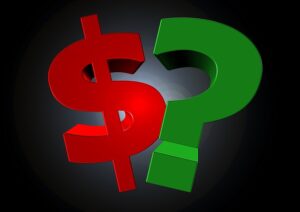25 March 2024: Buying a Business: What to Ask Yourself
If you’re thinking of buying a business, do you have any idea what to look for?
We’re not referring to what type of business to look for but, rather, what to look for in a business that might interest you. Buying a business ain’t for the faint of heart. Knowing where to start and, more specifically, what to look for is critical to assuring success not only in the actual acquisition but also in the subsequent operation and profitability of the the business you buy.
Let me start this post out by describing who the content if aimed at – and who it’s not.
__________________________________________________________________________________
All the events planned coming months in The Brokers Roundtable℠ are posted in the Announcements section. We’re adding more events regularly so be sure to check back weekly so you don’t miss Office Hours (“Ask Me Anything”), any workshops, Live Streams, Thursday Specials and more.
REALTORS: The Announcements space has news you can use!
If you’re not yet a Member of The Brokers Roundtable℠, you can find out what other benefits Members enjoy – and join us – here.
___________________________________________________________________________________
One of the terms used in our industry is “Mom and Pop” or “Main Street” businesses – which refers also to the owners and buyers of those businesses. Our industry is divided into four major categories and are defined, very roughly, buy revenue.
- Main Street: Generally refers to businesses with revenue of up to US$1.5 million to $2M.
- Lower Middle Market: Depending on whose definition is used, this generally refers to businesses with revenue of between $10-$25 million
- Middle Market: Businesses with revenue up to $1 billion.
- Upper (Large Business) Market: Businesses with revenue of at least $1 billion.
Our time is spent in the first two groups.
__________________________________________________________________________________
Courses! Courses! Courses!
Many of you have asked if our Flagship Course, “Learn How to Value and SUCCESSFULLY Sell Businesses“, could be made available on a module-by-module basis. Instead of enrolling in the complete course, could you enroll only in the module(s) you wanted? We’re happy to report that this is now possible.
We’ve broken our Flagship into six separate modules (or module groups) to give you all the flexibility you need to learn only what you want to learn – and we’ve moved them all over to the new Brokers Academy in The Brokers Roundtable℠ . The Flagship is still available but the modules are now available individually.
You don’t need to be a Member of The Brokers Roundtable℠ to access any of these courses but if you are, you’ll receive a 20% discount on any course you enroll in. If you’re not yet a member of The Brokers Roundtable℠, you can learn more – and get access to all the talent and resources – here.
___________________________________________________________________________________
Notwithstanding the title of this article, there are two basic types of buyers – financial and strategic – and if you’re buying a business you need to know which you are.
 Buyers in the Main Street Market are generally financial; asking the question, “How much will this business put in my pocket?” Strategic buyers are occasionally found wandering around in the Main Street Market – particularly private equity and search firms – but that’s been a fairly recent phenomenon and only for businesses at the higher end of the revenue range. The larger the business, the more likely the buyers will be strategic. Because strategic buyers are generally professionals – more experienced as buyers, more sophisticated about deals, valuations and deal structure. This post is directed toward financial buyers – those looking to acquire a business in the Main Street or the lower reaches of the Lower Middle Market.
Buyers in the Main Street Market are generally financial; asking the question, “How much will this business put in my pocket?” Strategic buyers are occasionally found wandering around in the Main Street Market – particularly private equity and search firms – but that’s been a fairly recent phenomenon and only for businesses at the higher end of the revenue range. The larger the business, the more likely the buyers will be strategic. Because strategic buyers are generally professionals – more experienced as buyers, more sophisticated about deals, valuations and deal structure. This post is directed toward financial buyers – those looking to acquire a business in the Main Street or the lower reaches of the Lower Middle Market.
This is not a course (though we offer courses on several of these aspects) but rather a brief discussion of what we would consider the more important considerations a buyer of a Main Street business is faced with.
_____________________________________________________________________________________
Our course, “Learn How to Value and SUCCESSFULLY Sell Businesses“, teaches you how to accurately value and successfully sell businesses.
 What’s it Worth?: This would seem to be the most basic question but it’s seldom even considered. We suspect the main reason buyers don’t ask this all important question is that they rarely understand that businesses can be valued by applying basic calculations to certain financial results. Do yourself a HUGH favor and find out what the business you’re targeting is likely worth. As a rule, business owners have an exaggerated sense of their business’ value. Our nearly 25 years advising sellers and buyers suggests that the businesses you’ll be considering will be over-priced – some, significantly so. This is particularly true if the business comes to market with professional (i.E. CBI) representation. Don’t run the avoidable risk of over-paying. Have someone who knows what they’re doing perform a valuation/
What’s it Worth?: This would seem to be the most basic question but it’s seldom even considered. We suspect the main reason buyers don’t ask this all important question is that they rarely understand that businesses can be valued by applying basic calculations to certain financial results. Do yourself a HUGH favor and find out what the business you’re targeting is likely worth. As a rule, business owners have an exaggerated sense of their business’ value. Our nearly 25 years advising sellers and buyers suggests that the businesses you’ll be considering will be over-priced – some, significantly so. This is particularly true if the business comes to market with professional (i.E. CBI) representation. Don’t run the avoidable risk of over-paying. Have someone who knows what they’re doing perform a valuation/
Experience: Do you know the industry? If you’re acquiring a small auto-parts manufacturer, have you got any experience in general small manufacturing? If you’ve spent the last seven years overseeing the operations of a small chain of retail ice cream shops, jumping into an industry with which you have little or no familiarity can be a recipe for financial disaster. If you don’t have the experience, make sure the target business has an experienced management team that comes with the business and that that team has demonstrated the ability to run the business during prolonged absences of the current owner.
 Licenses and certifications: Are any special or unique licenses or certifications required? If so, and if the business or its management currently possesses them, do they – and the specific managers – convey with the business? If not, can the buyer obtain them within a reasonable period of time and at reasonable cost? Acquiring a real estate broker’s license that is needed to operate a five location realty business requires a completely different mindset, time commitment and financial statement then getting certified to operate a biochemical or hazardous waste business.
Licenses and certifications: Are any special or unique licenses or certifications required? If so, and if the business or its management currently possesses them, do they – and the specific managers – convey with the business? If not, can the buyer obtain them within a reasonable period of time and at reasonable cost? Acquiring a real estate broker’s license that is needed to operate a five location realty business requires a completely different mindset, time commitment and financial statement then getting certified to operate a biochemical or hazardous waste business.
Return on Investment: A business has to do three things for its owner. 1.) It has to pay the owner – or a manager that the owner (you) hire – an amount commensurate with what is common in the business’ industry; 2.) It has to pay off the note used to finance the acquisition. If you borrow $750,000 for the acquisition of a $1 million business, the net cash flow must be adequate to make the payments; 3.) It has to provide a return on your investment. If you borrow $750,000 for the acquisition of a $1 million business, you implicitly have invested $250,000 of your own money. That money was sitting somewhere (other than in your underwear drawer) and presumably earning some interest. Aside from being able to pay you a salary and pay off the acquisition note, the business must be able to generate enough free cash flow to provide a return on your cash investment.
Growth Potential: Do you see any? If the business has been owned and operated for the last 20 years by the same owner, new eyes generally see new opportunity. However, the industry itself might be in its end-of-life period. For example, 100 years ago businesses existed for  delivering ice, cleaning streets of animal waste and lighting gas lamp posts every evening. Fifty years ago in the United States, ticker-tape parades were held for everything from a successful moon-landing to a successful hockey season. No more. Why? because there’s no more ticker-tape, And THAT’S because the only remaining ticker machines are in financial museums. Acquiring a ticker-tape machine manufacturer in 1975 was to put all your dough in a 55 gallon oil drum and set it alight. And speaking of 55-gallon oil drums, more contemporaneously, if Western governments have their way, in 20 years there’ll be no more gas stations, heating oil companies, pipeline suppliers and the like. Can you see how to grow the business? That’s your job. You will – someday – sell what ever business you acquire. You need to have confidence that you can sell it for more, adjusted for inflation, than you buy it for.
delivering ice, cleaning streets of animal waste and lighting gas lamp posts every evening. Fifty years ago in the United States, ticker-tape parades were held for everything from a successful moon-landing to a successful hockey season. No more. Why? because there’s no more ticker-tape, And THAT’S because the only remaining ticker machines are in financial museums. Acquiring a ticker-tape machine manufacturer in 1975 was to put all your dough in a 55 gallon oil drum and set it alight. And speaking of 55-gallon oil drums, more contemporaneously, if Western governments have their way, in 20 years there’ll be no more gas stations, heating oil companies, pipeline suppliers and the like. Can you see how to grow the business? That’s your job. You will – someday – sell what ever business you acquire. You need to have confidence that you can sell it for more, adjusted for inflation, than you buy it for.
Deal Structure: How a deal is structured is critical from two significant standpoints: taxes and liabilities. From a very basic level, there are two basic ways of structuring the deal – asset or stock sale – and knowing the difference between the two and how the structure will impact your tax liabilities when you sell and your operational and ownership liabilities during the early years of owning the business is an important consideration.
The Bottom Line
When buying a business, you’ve got to realize that the list above is not all inclusive. There are a dozen or more important aspects to consider when buying a business – an event that will, n all likelihood, be the most significant financial event of your life – until you sell it, of course.
Buying a business is complex and full of pitfalls if you don’t know the numerous potential pitfalls and booby traps that can send your future plans into a tailspin. Get knowledgeable advice – council from professionals that have the training and experience to keep your butt from getting fried.
These comments are not by any means meant to imply that a seller will try to pull a quick one on you. To the contrary. When buying a business, you may run into the occasional unethical seller, they’re rare. But in fact, few sellers are generally as ignorant of this process as are buyers.
Assemble the right team. No matter what that team costs, it will almost certainly save you a bundle.
I’d like to hear from you. What topics would you like me to cover? How can we tailor these posts to be more useful to you and your business. Let me know in the comments box, below, or email me at
jo*@Wo*******************.com
.
If you have any questions or comments on this topic – or any topic related to business – I’d like to hear from you. Put them in the comments box below. Start the conversation and I’ll get back to you with answers or my own comments. If I get enough on one topic, I’ll address them in a future post or podcast.
I’ll be back with you again next Monday. In the meantime, I hope you have a safe and profitable week.
Joe
Searching For…
NOTE TO READERS: Our “Searching For…” feature has been moved to our online community, The Brokers Roundtable℠. It will appear there exclusively from now on.

#business #businessacquisition #sellabusiness #becomeabusinessbroker #businessbrokering #businessvaluation #MergersandAcquisitions #buyabusiness #sellabusiness #realtor #realestateagents
The author is the founder, in 2001, of Worldwide Business Brokers and holds a certification from the International Business Brokers Association (IBBA) as a Certified Business Intermediary (CBI) of which there are fewer than 600 in the world. He can be reached at
jo*@Wo*******************.com
